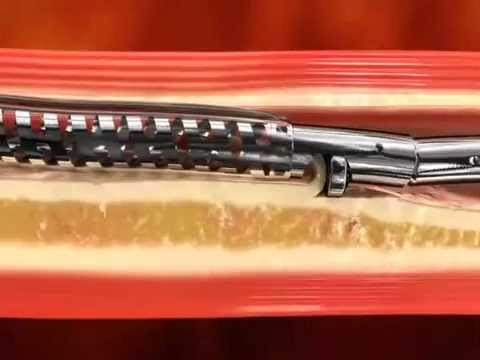CONDITIONS
Peripheral Arterial Disease (PAD) is a common circulation problem in which the arteries that carry blood to the legs or arms become narrowed or clogged.
This interferes with the normal flow of blood, sometimes causing pain, but often causing no symptoms at all. The most common cause of PAD (also known as Peripheral Vascular Disease, or PVD) is atherosclerosis, often called “hardening of the arteries.” Atherosclerosis is a gradual process in which cholesterol and scar tissue build up, forming a substance called “plaque” that clogs the blood vessels. In some cases, PAD may be caused by blood clots that lodge in the arteries and restrict blood flow.
If these symptoms are left untreated, this insufficient blood flow will lead to worsening symptoms, skin ulcerations and even limb amputation in some patients. In atherosclerosis, the blood flow channel narrows from the buildup of plaque, preventing blood from passing through as needed, restricting oxygen and other nutrients from getting to normal tissue.
The arteries also become rigid and less elastic, and are less able to react to tissue demands for changes in blood flow. Many of the risk factors (high cholesterol, high blood pressure, smoking and diabetes) may also damage the blood vessel wall, making the blood vessel prone to diffuse plaque deposits.
Symptoms
- The most common PAD symptom is called claudication, which is leg pain that occurs when walking or exercising and disappears when the person stops the activity.
- Other signs and symptoms of PAD include:
- Numbness and tingling in the lower legs and feet
- Coldness in the lower legs and feet
- Non-healing ulcers or sores on the legs or feet
Many people simply live with their pain and do not recognize these as symptoms of PAD. Instead they assume it is a normal part of aging, rather than reporting it to their doctor. It is important to recognize the signs of PAD as early as possible, so proper treatment can be sought.

